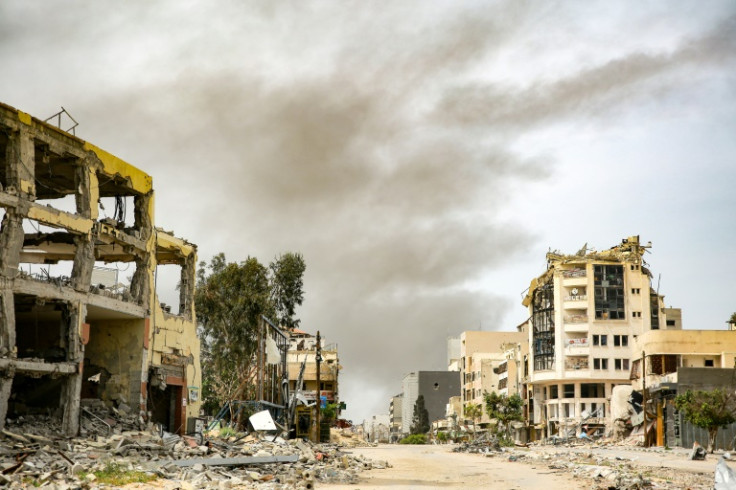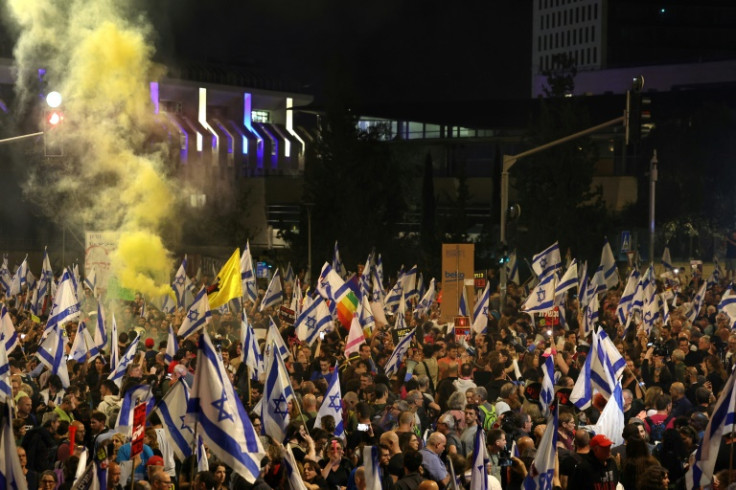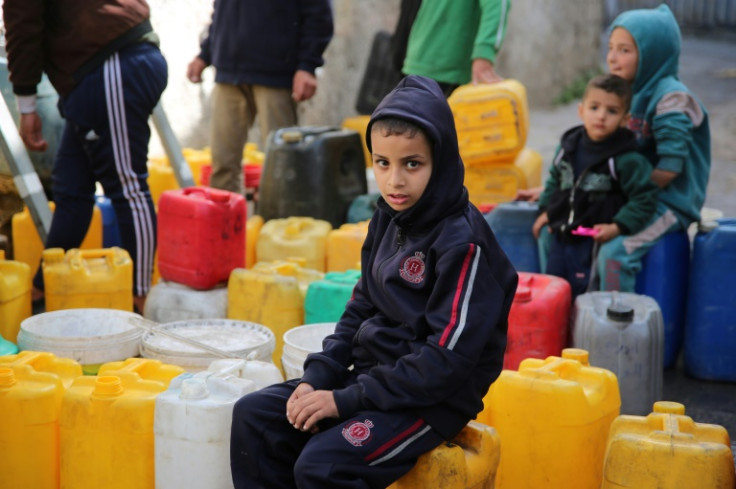
The Hamas-run health ministry in Gaza said Monday the Israeli military had withdrawn tanks and vehicles from the complex housing the besieged territory's main hospital, Al-Shifa, days after the launch of a major operation on the site.
The ministry said dozens of bodies had been found at the complex, where an AFP journalist and eyewitnesses saw tanks and vehicles pulling out.
The Israeli military did not immediately confirm any pullout.
Eyewitnesses said dozens of air strikes and shells had hit the area around the complex.
The Hamas government media office said the Israeli air strikes had provided cover for the withdrawing vehicles.
The army launched its operation on March 18 and has described it as a "precise" one targeting Hamas militants it accused of operating from the complex.
It has previously said 200 militants had been killed in fighting in and around Al-Shifa.
The army has also released footage it claimed showed weapons and money seized from the hospital that had been used by Hamas and another militant group, Islamic Jihad.
Hamas has denied operating from Al-Shifa and other health facilities.
"Dozens of bodies, some of them decomposed, have been recovered from in and around the Al-Shifa medical complex," the health ministry said in a statement.
The Israeli military "withdrew from the Al-Shifa medical complex after burning down the complex buildings and putting it completely out of service", it said.
"The scale of the destruction inside the complex and the buildings around it is very large."
An AFP journalist on the scene said several buildings inside the complex had been damaged, with some areas showing damage from fire.
A doctor told AFP more than 20 bodies had been recovered and that some had been crushed by withdrawing vehicles.
With hundreds of thousands of Gazans displaced by the war, hundreds had sought refuge at the Al-Shifa complex prior to the operation.
Israeli troops first raided Al-Shifa in November, but said militants had since returned.
Deadly air strikes pounded other areas of the Gaza Strip early Monday, while fighting raged in several flashpoints located across the territory.
At least 60 people died in Gaza during the night, the health ministry said Monday.
The war erupted when Hamas carried out its unprecedented attacks on Israel, which resulted in about 1,160 deaths in Israel, mostly civilians, according to an AFP tally of Israeli official figures.
Israel's retaliatory campaign has killed at least 32,782 people, mostly women and children, according to the Gaza health ministry.
The Israeli military on Monday announced 600 Israeli soldiers have been killed since the start of the war.
During the October 7 attacks, Palestinian militants also seized around 250 Israeli and foreign hostages.
Israel believes about 130 hostages remain in Gaza, including 34 who are presumed dead.
The Israel-Hamas war has devastated much of Gaza, including several health facilities, and sparked warnings of famine among the civilian population.
A UN Security Council resolution on March 25 demanded an "immediate ceasefire" and the release of all hostages held by militants, but the binding resolution has failed to curb the fighting, including in or around hospitals.
World Health Organization chief Tedros Adhanom Ghebreyesus said in a post on social media platform X that an Israeli air strike on Sunday hit "a tent camp" inside the Al-Aqsa hospital compound in central Gaza, killing four people and wounding 17.
Israel's military denied that the hospital was damaged, saying on X that one of its planes had "struck an operational Islamic Jihad command center and terrorists positioned in the courtyard of the Al-Aqsa Hospital in the area of Deir al Balah".
Tensions have risen between Israel and its chief backer the United States over the spiralling civilian death toll, and especially over Israeli threats to send ground forces into Gaza's crowded far-southern city of Rafah.
Around 1.4 million people who fled their homes elsewhere in Gaza have sought shelter in Rafah, the only part of the territory Israeli troops have yet to enter.
Washington has nonetheless approved billions of dollars worth of bombs and fighter jets for Israel in recent days, The Wall Street Journal reported, citing unnamed officials.
Israeli Prime Minister Benjamin Netanyahu underwent "successful" hernia surgery, his office said Monday.
Doctors had discovered the hernia on Saturday during a routine checkup, with Deputy Prime Minister and Justice Minister Yariv Levin standing in for Netanyahu during the operation.
Netanyahu, who has repeatedly vowed to crush Hamas and bring all the hostages home, has faced growing pressure from Israelis demanding the release of those taken by militants on October 7.
Thousands of people took to the streets of Jerusalem for a second consecutive night on Sunday, calling for greater efforts to free the hostages held in Gaza and the ousting of Netanyahu.
Demonstrators blocked a main city highway after earlier rallying in front of the Israeli parliament, lighting fires and waving Israeli flags.
Meanwhile, in a bid to help alleviate the suffering of Gaza's 2.4 million people, an aid ship was sailing from the Mediterranean island nation of Cyprus to bring 400 tonnes of food, as part of a small flotilla.
Foreign powers have ramped up aid airdrops, although United Nations agencies and charities warn this falls far short of the dire need and say trucks are the most efficient way of delivering aid.









